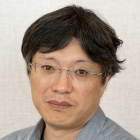You are here
Yutaka Yoshida, Ph.D.
Biography
Dr. Yutaka Yoshida received his Ph.D. in Dr. Tadashi Yamamoto’s lab from the University of Tokyo where he studied the antiproliferative protein, Tob. Dr. Yoshida showed that Tob is a tumor suppressor gene (Yoshida et al., Genes & Dev, 2003), and that Tob inhibits bone formation by interacting with Smad proteins (Yoshida et al., Cell, 2000). Following his time at the University of Tokyo, Dr. Yoshida joined Tom Jessell’s lab at Columbia University as a postdoctoral fellow. In the Jessell lab, he found that Sema6D and Sema3E bind to PlexA1 and PlexD1, respectively (Yoshida et al., Neuron, 2006; Gu* and Yoshida* et al., Science, 2005). He further generated PlexA1 and PlexD1 null and conditional mutant mice, and showed that PlexA1 regulates sensory axon guidance (Yoshida et al., Neuron, 2006), and that PlexD1 controls vascular patterning in collaboration with David Ginty and Alex Kolodkin (Gu* and Yoshida* et al., Science, 2005).
In 2008, Dr. Yoshida started his own lab at Cincinnati Children’s Hospital Medical center and continued to focus on cellular and molecular mechanisms of formation, function, and regeneration of neural circuits in motor systems. There, he showed molecular mechanisms underlying axon guidance (Leslie et al., Development, 2011), synaptic specificity (Fukuhara et al., Cell Reports, 2013), synapse formation (Imai et al., Journal of Neuroscience, 2016), and synaptic maintenance (Imai et al., Cell Reports, 2016) of proprioceptive sensory neurons in the spinal cord.
In addition, Dr. Yoshida began studying corticospinal circuits to control skilled movements (reviewed by Yoshida and Isa, Current Opinion in Neurobiology, 2018; Kalamboglas and Yoshida, Current Opinion in Physiology, 2020). He recently showed how species-specific corticospinal circuits could be formed (Gu et al., Science, 2017), how corticospinal circuits are reorganized (Gu et al., Neuron, 2017), which interneurons are connected to corticospinal neurons (Ueno et al., Cell Reports, 2018), and how corticospinal axonal projections are regulated in the spinal cord (Gu et al., Journal of Neuroscience,2019 & 2020). In addition, Dr. Yoshida has been studying spinal cord injury (Ueno et al., Nature Neuroscience, 2016; Ueno et al., Cerebral Cortex, 2020; Nakamura et al., Journal of Neuroscience, in press).
Dr. Yoshida’s lab moved to Burke Neurological Institute / Weill Cornell Medicine in 2018, where he has continued to expand our motor circuit research.

